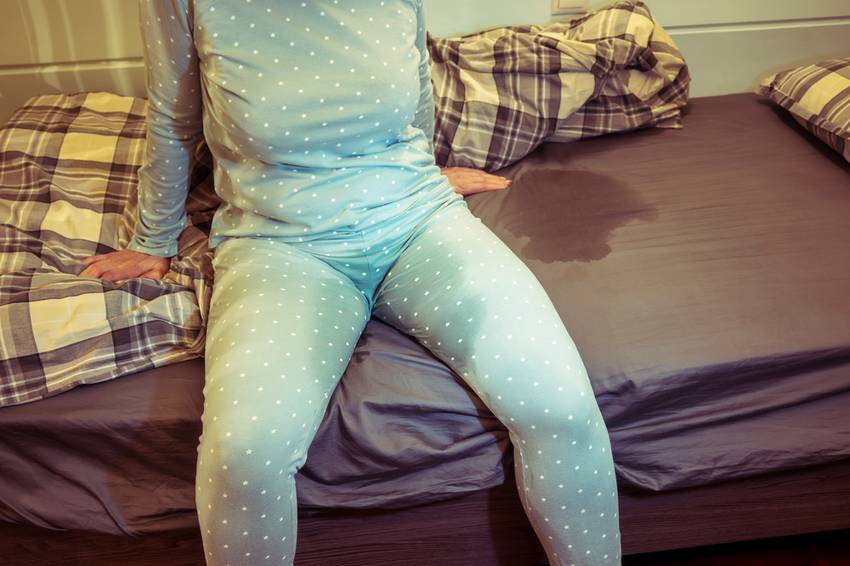It may be an inconvenience for parents, but bedwetting problems in kids are pretty common. You’re frustrated. You’re exhausted. Your child is already at school, but they still wet the bed at night. You’ve tried limiting liquids after dinner. You have woken your child in the middle of the night for the bathroom—still, no luck.
You are not the only one. Bedwetting is a concern that parents often have with their children. It can be defined as “involuntary urine in children aged 5 and older” but only 15% of American children still wet the bed at 5. let’s take a look at bedwetting problems in kids and how to stop bedwetting.
What is Nocturnal Enuresis or Bedwetting?
Nocturnal Enuresis is the medical term for the inability to control your urine. Enuresis can also be called involuntary urine. Nocturnal Enuresis refers to involuntary urination at night while a person is asleep. It occurs after a person is able to control their bladder. Diurnal Enuresis is involuntary urination that occurs during the day. This problem affects approximately 1-2 of 100 children.
There are two types of bedwetting. Primary refers to bedwetting that has been going on since childhood, without any interruption. Primary bedwetting in a child happens when he/she has not wet at night for a significant amount of time (since potty training). Secondary bedwetting refers to bedwetting that occurs after the child has been dry at bed for at least six months.

What Causes Primary Bedwetting?
Many children experience nighttime wetting due to slow physical development, family history of bedwetting, and/or excessive urine production at night. There may be more than one reason in many cases. Most children don’t wet their beds intentionally. It is common for bedwetting to run in families.
- Slow physical development. Your child may wet their bed between the ages of 5 and 10. You may find your child has a small bladder or deep sleep cycle. Or, you might have a nervous system still developing and growing. The nervous system is responsible for sending signals to the body about full bladder or empty bladder and the need to get up.
- Family history. Many families have a history of bedwetting. Researchers have discovered genes that can be linked to bedwetting. The master code is the genetic information that each child inherits from their parents for hair color and other traits.
- Too much urine. Overfilled bladders can be caused by your child’s kidneys making too much urine at night. A wet bed can occur if your child isn’t able to get up on time. A low level of an antidiuretic hormone (ADH) can lead to excess urine at night. ADH is a signal to the kidneys to reduce water loss at night.
- Poor daytime toilet habits. Children often ignore the need to urinate and delay urinating for as long as possible leading to nighttime bedwetting.

What Causes Secondary Bedwetting Problems in Kids?
Secondary bedwetting could be an indication of an emotional or medical problem. It can also be a sign of underlying medical or emotional problems. These are some common causes of secondary bedding:
- UTI. Urinary tract infection can lead to pain, irritation and frequent urination. Children may have a urinary tract infection. This could indicate an anatomical problem.
- Diabetes. Diabetes patients have high blood sugar levels. To get rid of sugar, the body will increase urine output. Diabetes is often characterized by frequent urination.
- A structural or anatomical anomaly. An abnormality in the organs, muscles, or nerves involved in urination can lead to urinary problems that could show up as bedwetting.
- Sleep apnea. If your child’s breathing is interrupted, it makes their brain work harder to absorb oxygen than other functions like bladder control. Children with sleep apnea are often affected by their airway obstructions and tonsils. If this happens, it is possible to improve children’s breathing by removing their tonsils or adenoids. This can also help with bedwetting.
- Neurological problems. An abnormality in the nervous system or injury or disease to the nervous system can disrupt the delicate balance that regulates urination.
- Emotional problems. Children who live in stressful homes, such as divorced parents, may wet their beds. Bedwetting can also be caused by major changes such as a new baby or starting school. Sometimes, children who have been sexually or physically abused may start to wet their sheets.
How to stop bedwetting?
Doctors suggest these suggestions to combat bedwetting:
- Shift times for drinking. Fluid intake should be increased earlier in the morning and decreased later in the afternoon. After dinner, fluid intake should be stopped.
- Schedule bathroom breaks. Your child should be able to urinate regularly (every two to three hours) right before bed.
- Be positive and encouraging. Reward your child for their successes and make them feel proud.
- Eliminate bladder irritants. Begin by removing caffeine from chocolate milk and cocoa. If this fails, you can cut down on artificial flavorings, sweeteners, dyes (especially red), and citrus juices. These can all cause irritation to the bladder of children, which is something many parents don’t know.
- Don’t let your child become dehydrated. Give your child water bottles. This will allow them to drink steadily throughout the day. This will prevent your child from becoming dehydrated after school.

- Constipation. Constipation problems can be caused by your bladder being right behind your rectum, especially at night. About one-third of children who wet their beds are affected by this problem, although children are unlikely to share or identify information about constipation.
- Do not wake your child up in the night to ask them to urinate. This will only result in more frustration and sleeplessness for both you and your child.
- An earlier bedtime. Children are often deep sleepers simply because they don’t get enough sleep.
- Reduce screen time before bed. Improved sleep hygiene can slow down their brains and help them sleep better.
- Don’t resort to punishment. Anger at your child won’t end bedwetting. This doesn’t have to be a conflict-filled process.
Conclusion
Bedwetting problems in kids may be a sign of a sleep disorder, in which case, a sleep study can be conducted. In the meantime, you can try out the above-mentioned tips on how to stop bedwetting problems in kids.
If you have any other concerns about your child’s bedwetting, make an appointment with your pediatrician.
Also Read,
How To Improve Family Relations? 9 Amazing Tips
Cognitive Behavioral Therapy (CBT): 4 Benefits Of CBT
Struggles Of A Psychologist: 10 Challenges Faced By A Clinical Psychologist
How To Become A School Psychologist In India? Skills And Scope












